#trs apollo
Text
Hermes: Okay, I've come up with a 3-step plan to get Dionysus to marry you.
Apollo: ..............okay
Hermes: Step one, invite him to play truth or dare
Apollo: what
Hermes: Step two, wait until he picks dare which he will because I'll be making chicken noises at him
Apollo: why?
Hermes: Step three...dare him to marry you
Apollo: Absolutely not
Dionysus, sitting right there: It might work
#Apollo and Dionysus are cuddling btw#it's true don't argue#i don't make the rules#i enforce them#saw this from a pjo account and decided to steal it#if i find them again I'll tag them#the rising son#trs apollo#the season#trs dionysus#trs hermes#apollo#dionysus#hermes#apollo and dionysus#incorrect quotes
80 notes
·
View notes
Text

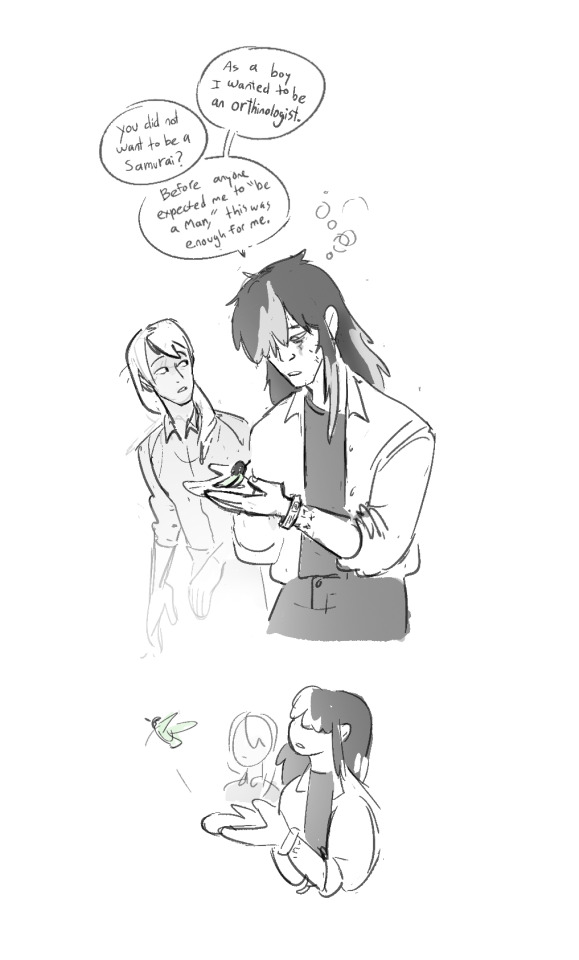
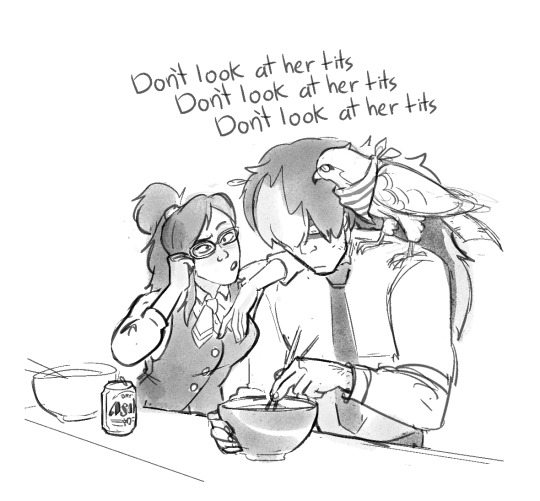
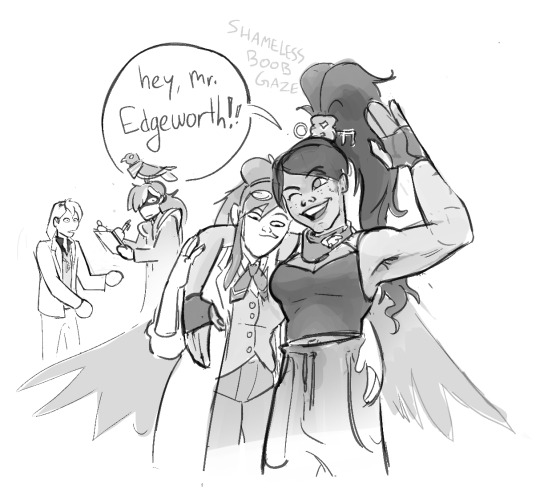
I had a stressful week and my new coping mechanism is drawing moments from my fanfic that I haven't written yet... the theme for these doodles is Simon Experiences Bisexuality
#simon blackquill#kay faraday#apollo justice#klavier gavin#ema skye#my art#the ghist is Simon is A MESS after getting out of priso n but he slowly figures out his life :)#Im writing simon as b i and more of a relationship anar ch ist. theres no central shi p but he messes around#tho i do think of this whole generation as eventually being one big pol ycul e#appy juice is tr ans ma sc :) and shares a jo int with simon :) after theyve decided they don't hate each other. eventually#ema skye is drinking the kaiji bee r bc she is very kaijicore
323 notes
·
View notes
Text

Earlier version of the Martin Marietta Teleoperator Retrieval System, which would have been used to boost the Skylab Orbital Workshop into a higher orbit by STS-2 Columbia.
"The Teleoperator Retrieval System (TRS), to be used in conjunction with the space shuttle in the early 1980s, approaches a satellite for docking and retrieval. This system will be used to survey, stabilize, and maneuver payloads in low earth orbit."
Date: 1977
NASA ID: S77-002623
#STS-2#Space Shuttle#Space Shuttle Columbia#Columbia#OV-102#Orbiter#NASA#Space Shuttle Program#Teleoperator Retrieval System#TRS#Martin Marietta#Reboost Mission#Skylab Orbital Workshop#Skylab OWS#Skylab#Skylab I#Skylab 1#SL-1#Space Station#Apollo Telescope Mount#ATM#Apollo Program#Apollo Applications Program#Cancelled#1977#concept art#undated#my post
25 notes
·
View notes
Note
Hello my queen! If you had to choose, who would be your favorite Olympian god/goddess besides Poseidon?

In myth: it’s said Amphitrite was one of the goddesses(her,Rhea,Dione,Ichhanea and Themis) who were present in Apollos and Artemis’ birth.
This info made me have the liberty of making Amphitrite be his some what god mother figure considering she’s his aunt, and make her have a really close relationship with Apollo, sharing similarities and having a chaotic bond.
Apologize if this looks lazy 🧍♀️🤚🏽
They besties your honor 🦈
#he’s like the son she never had#suck balls Tr*ton#I hate that guy! who is that guy? omg? overrated!!!#record of ragnarok#shuumatsu no valkyrie#ror#snv#ror poseidon#poseidon#snv poseidon#shumatsu no valkyrie#my art#record of ragnarok oc#queen amphitrite#amphitrite#Goddess Amphitrite#sea goddess Amphitrite#Ror Apollo#snv Apollo#Apollo#Leto
42 notes
·
View notes
Text
yenno, mikey and takemichi give me real strong achilles and patroclus vibes
#L speaks#like think about it#achilles is like undefeatable and strong and the leader that everyone looks up to#and takemichi is this like kinda useless kid who follows achilles around but is Achilles’ like entire moral compass#and takemichi even steps in for Mikey so many times like Patroclus did for achilles during That™️ battle of which we do not speak#(still mad at Apollo about that)#anywho#could just be my ancient history degree ass talking#Tokyo revengers#Tokyo rev#mikey#mikey tokyo revengers#mikey sano#hanagaki takemichi#takemitchy#takemichi Tokyo revengers#TR#achilles#patroclus#the Iliad#tsoa#the song of achilles#Iliad
25 notes
·
View notes
Text

#2024 election#tr*mp#b*den#gift of foresight#u.s. elections#u.s. politics#u.s. presidents#crimes#old men fighting#polls#voting#tumblr polls#democracy#joe biden#donald trump#apollo#prophecies
3 notes
·
View notes
Text
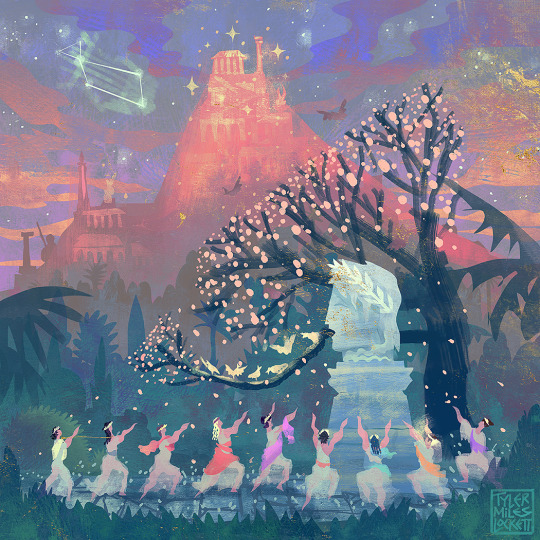
"Songbirds and the Stars" (part 9 in my Orpheus and Eurydice" series
Orpheus’ head and Lyre, still singing, float out to sea, eventually coming upon the shore of Lesbos. Orpheus head continues to sing to patrons, and is even interpreted by an oracle until Apollo interceded, as it competes with his oracle at Delphi. Eventually, the muses collect his dismembered body parts and head, and bury them upon the foot of Mount Olympus, where the nightingales sing above his grave. Through the support of Apollo and the Muses, Zeus casts Orpheus’ lyre up into the night sky as a constellation in honor of the poet’s musical powers.
Let’s take a moment to review the nine Muses of mount Helicon, those feminine patron deities inspiring the arts and sciences. We’ll begin with Orpheus’ own mother; Calliope-goddess of epic poetry. Clio is the muse of history, while Erato inspires erotic poetry. Euterpe represents music and lyrical poetry, and Melpomene sings tales of tragedy. Polymnia sings religious hymns, while Terpsichore delights in dance. Thalia was patron of festive comedy and Urania was the muse of Astronomy and astrology.
Ovid gives us the optimistic reuniting of the lovers in the underworld: “Meanwhile the fleeting shade of Orpheus had descended under earth: remembering now those regions that he saw when there before, he sought Eurydice through fields frequented by the blest; and when he found her, folded her in eager arms. Then lovingly they wandered side by side, or he would follow when she chose to lead, or at another time he walked in front, looking back, safely,—at Eurydice.” (Tr. By more)
Im Finished with the orpheus myth!! Woohoo!!Thanks for looking! I'd really appreciate if you could share this image!
Like this art? It will be in my illustrated book with over 130 other full page illustrations coming in June to kickstarter. to get unseen free hi-hes art subscribe to my email newsletter
Follow my backerkit kickstarter notification page.
Thank you for supporting independent artists! 🤘❤️🏛😁
#greekmythology#greekgods#pjo#mythology#classics#classicscommunity#myths#ancientgreece#Orpheus#Hades#persephone
96 notes
·
View notes
Text
What are some of the best LGBTQ books?
Carol / The Price Of Salt by Patricia Highsmith
Tipping the Velvet by Sarah Waters
Call Me by Your Name by Andre Aciman (this was just turned into a film)
The Female Man by Joanna Russ
Valencia by Michelle Tea
The Slow Fix by Ivan E. Coyote
Stone Butch Blues by Leslie Feinberg
Landing by Emma Donoghue
A Home at the End of the World by Michael Cunningham
The Kushiel's Legacy Series by Jacqueline Carey
The Nightrunner Series by Lynn Flewelling
Leave Myself Behind by Bart Yates
Now and Then by William Corlett
Dream Boy by Jim Grimsley
Les amitiés particulières (Special Friendships) by Roger Peyrefitte
Another Country by Julian Mitchell
Transgender History by Susan Stryker (good starting point into queer history in the United States)
All Boys Aren’t Blue by George M Johnson
Tr*nny: Confessions of Punk Rock’s Most Infamous Anarchist Sellout by Laura Jane Grace
An Unkindness of Ghosts by Rivers Solomon (dark but very engaging—the USA antebellum south but set on a generation ship)
Dead Collections by Isaac Fellman (read it in one night—archivist vampires)
Light from Uncommon Stars by Ryka Aoki (very cute and kind of wacky at points—includes aliens running a donut shop and Faustian deals with demons)
The Left Hand of Darkness, Ursula K. Le Guin
the song of Achilles has a special place in my heart
Middlesex - Eugenides
Fifteen Hundred Miles from the Sun by Johnny Garza Villa.
The Bucolic Plague by Josh Kilmer-Purcell
Insignificant Others by Stephen McCauley
Let There Be Light by AM Johnson.
When Everything Is Blue by Lauren Lascarso.
Boyfriend Material and Glitterland by Alexi Hall.
The Happy List by Briar Prescott.
The Charm Offensive by Alison Cochrun.
The Will Darling Adventures by KJ Charles.
Heated Rivalry by Rachel Reid.
The Place Between by Kit Oliver.
The Hearts Invisible Furies by John Boyne.
Bear, Otter and the Kid by TJ Klune.
Fun Home by Allison Bechdel
The Mask of Apollo - Renault
#lgbt pride#pride parade#pride#wlw pride#mogai pride#mtf pride#trans pride#ace pride#lgbt#queer#gay pride#lgbtqia#pride month#pride flags#lgbt books#bookshelf#book reviews#books#book quotes#bookaholic#bookboost#bookblr#bookbuzz#reading#booklr#books and reading#booknerd#bookworm#book review
286 notes
·
View notes
Text

Archaic Torso of Apollo - Rainer Marie Rilke, tr. Stephen Mitchell
20 notes
·
View notes
Text
Some headcannons for my current roadtrip fic
The two best drivers are Apollo and Dionysus, but no one knows Dionysus can drive because he refuses to get a licence
Dionysus also tends to drive like a freak. Like, he will ignore all signs and road restrictions. "The road is empty why would I drive at 50???" And then he bumbs it onto a 100.
Apollo is the opposite. He follows all the rules. All. Of. Them. Dionysus makes fun of him for it.
Two worst drivers are Hermes and Artemis.
Athena refuses to use Google maps because regular maps are better... She can't read regular maps.
Hermes uses a gps behind her back
Ariadne has a roadtrip vibes playlist and it's genuinely a calming playlist
Artemis has a bunch of song memorised from her time with her Huntresses
Artemis and Dionysus argue a lot. All the time.
Dionysus has alcohol for every occasion
Apollo gets tired at some point and Dionysus makes him pull over and hand over the steering wheel
Apollo while terrified at the prospect doesn't argue too much
Dionysus is a better driver than anyone expects. It's actually insane. They're all very very shocked.
Apollo ends up falling asleep and Dionysus keeps taking glances at him and smiling.
They stop at a motel because their car broke down and it lead to too much choas
Dionysus, Apollo and Hermes share a room and Dionysus and Apollo have to share a bed
It goes about as well as expected
Apollo, Artemis and Hermes steal from a convenience store
Athena reprimands them
Athena, also, has all the snack
Hermes, Artemis and Ariadne end up at a gay club while Dionysus and Apollo are lost in the woods
#headcanon#for my fic#some of these will make it in#others will not#the rising son#the season#trs apollo#trs#trs dionysus#trs athena#trs artemis#trs hermes#trs ariadne#greek mythos#greek myths#theseason#apollo#dionysus#ariadne#artemis#athena#hermes#ao3#writing#writblr
21 notes
·
View notes
Text
Found Family Tournament Round 1 Part 20 Group 100
Propaganda and further pictures under the cut

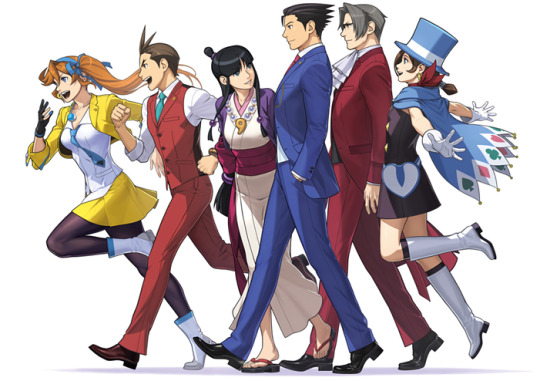
Reds and Blues: Grif, Simmons, Sarge, Donut, Lopez, Doc, Caboose, Church, Tucker, Agent Washington, Agent Carolina, Locus
Wright Anything Agency (& Company): Phoenix & Trucy Wright, Apollo Justice, Maya Fey, Miles Edgeworth, Pearl Fey, Ema Skye, Kay Faraday & Sebastian Debeste
Submissions are still open!
Reds and Blues:
My babies are all assholes but love each other deep down
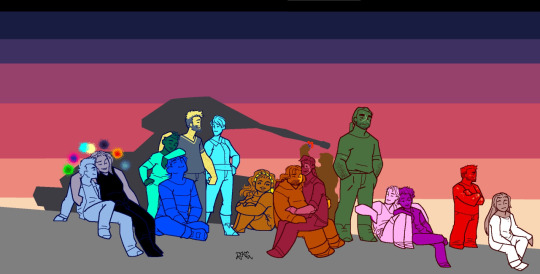
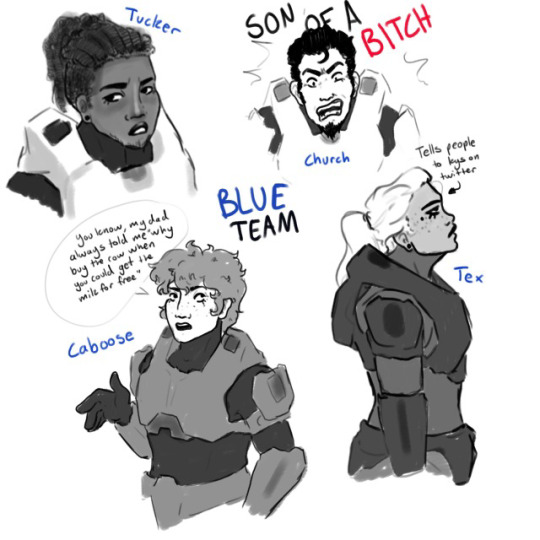

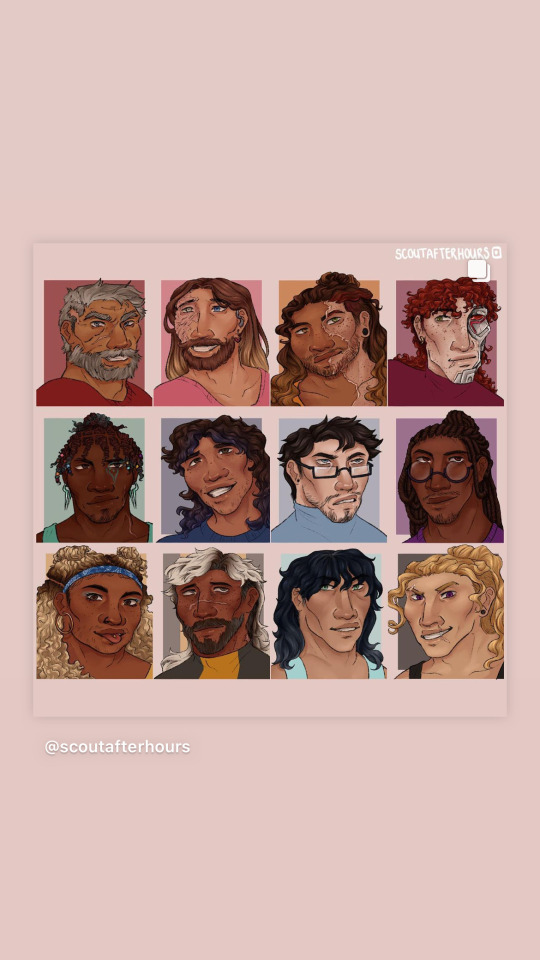
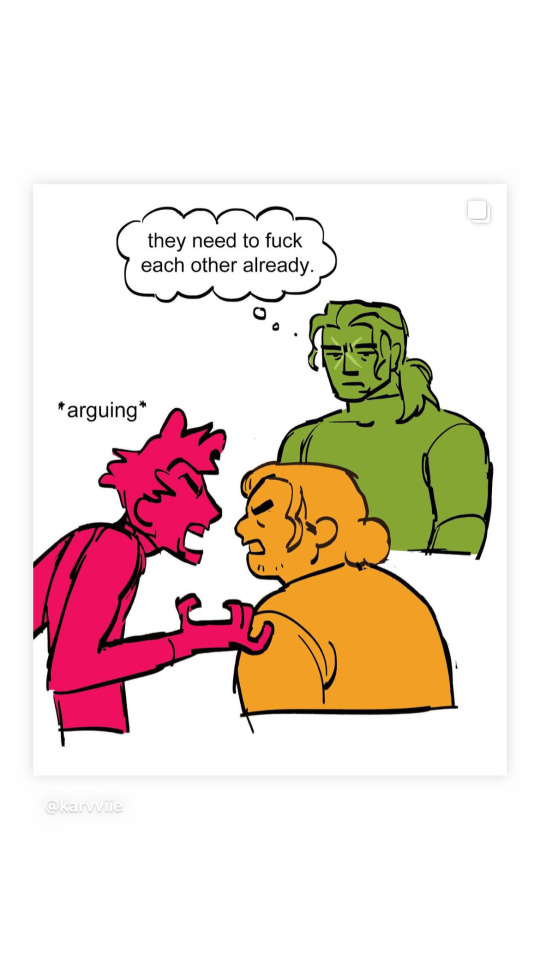
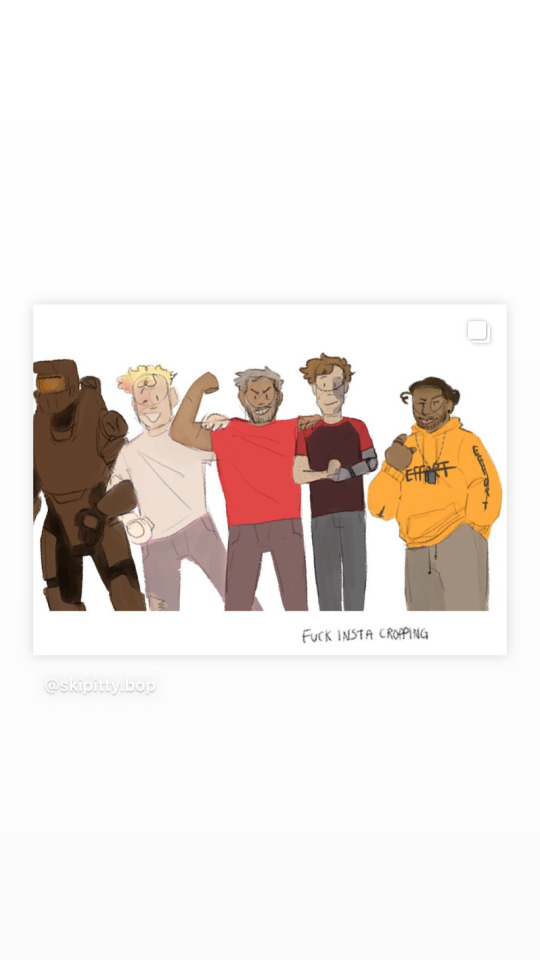
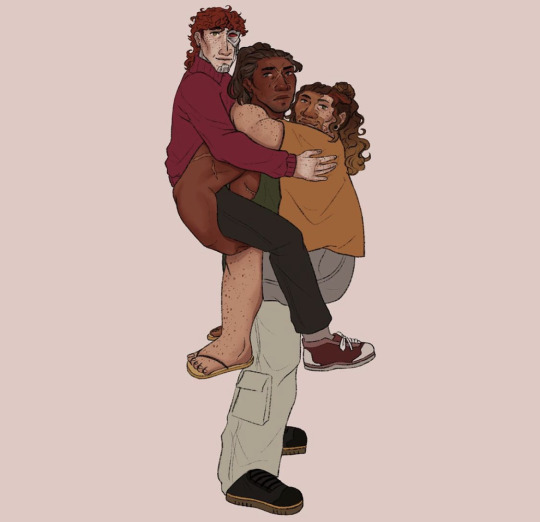
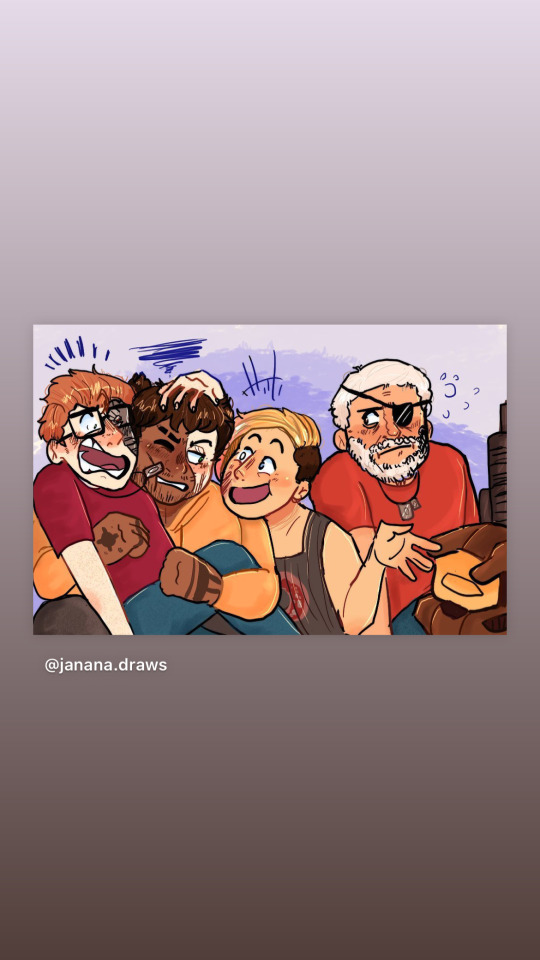
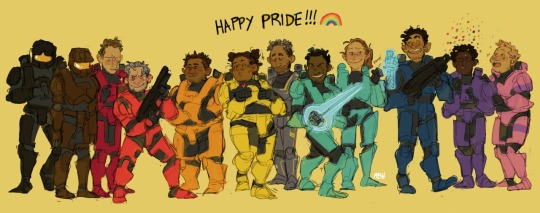
Wright Anything Agency (& Company):
THEY MEAN THE WORLDDDDD TO MEEEEEE for some reason a lot of people in the fandom don't play Ace Attorney 5 which is fair since it's kind of messy BUT. BUT. IT INTRODUCES ATHENA AND DOES SOOOO MUCH FOR THE WRIGHT ANYTHING AGENCY. In AA4 we learn that Trucy Wright made the Wright Talent Agency into the Wright Anything Agency in order to bring Apollo in as a lawyer when before it was just her (a magician) and her adopted father Phoenix (a poker player). and AA5 is all about Athena joining and Apollo learning how to trust her, at least it is to ME. they're so gooddddd aaaaaaa like you've got Phoenix and Trucy who are weirdos who love to scheme and you've got Apollo their longsuffering guy who deals with it all, and Phoenix is the mentor... and then Athena comes in and she has a lot of light and determination and trauma (just like the rest of them lol) and she's SO determined and I like her a lot!! And Trucy is my favorite and Phoenix cares about her SO much but he also has his other found family in the Feys!!!!!! Mia dies in the first game but her ghost stays with Phoenix and her sister/cousin Maya and Pearl are SO IMPORTANT TO HIM he loves them so much that's his sisters to me ;-; he would do anything for them and Trucy and he's growing as a mentor to Apollo and Athena too as the game progress... They don't write them all perfectly but they sure do a lot of things I like :) also feel free to split this up into their Wright Anything Agency or Phoenix + the Feys or Phoenix + Trucy if you need to I won't mind I just love AA's found family a lot
Picture this. You are a attorney in your mid 20s and somehow find yourself surrounded by weird little girls with every case you take on. You officially adopt one but really, all of them are either sisters or daughters to you. Especially your loud, burger-loving lesbian sister. Your childhood friend turned rival turned lover, who has a whip-wielding adoptive sister of his own, goes on a series of investigations while messing around with a furry for a couple of weeks and returns with two 17 year old children, a thieving lesbian and a child with a narcissistic murderer for a father who should've kept him back in school a few grades. Your lover has each of them under an arm, and they are appended to your stable of weird little girls but are very much hidden in the back. Then you find out that your daughter, the official one, has a 22yo trans half-brother with a musical diva mother and was half raised as a prince in Khura'in, so you divorce his boss (who is not your official lover, you just had a weird thing for a while when you were in your alcoholic phase, maybe while your actual lover was still messing around with the furry) very publicly while sending him to prison for murdering your daughter's father. Oh, but you have been disbarred, so you make your daughter's son send his own boss to prison, by planting false evidence on him. Of course the young man punches you in the face. Needless to say he works for you for a couple of years and never finds out that he's related to your daughter because that would require a straightforward conversation, now wouldn't it?
only one of them has never been arrested. only two of them arent lawyers. theyre all gay
Theyre very weird and misteruous and kinda fucked up a bit and they were through a lot but phoenix did his best and trucy well she's still just a kid but oh she's trying so fucking hard and always trying to wear a smile and it's breaking my heart the two of them. Also theyre weird i already said that but let me say it again they are WEIRD. and we love them<3 (the ace attorney fandom)
#tumblr polls#poll#polls#tournament poll#found family#found family tournament 2023#tumblr tournament#tournament#Reds and Blues#Red vs Blue#Wright Anything Agency (& Company)#Ace Attorney#Grif#Simmons#Sarge#Donut#Lopez#Doc#Caboose#Church#Tucker#Agent Washington#Agent Carolina#Locus#Phoenix wright#Trucy Wright#Apollo Justice#Maya Fey#Miles Edgeworth#Pearl Fey
89 notes
·
View notes
Text




"Skylab with the Teleoperator Retrieval System docked for its first post-Apollo reboost, ahead of refurbishment by a series of Space Shuttle missions"
Render by brickmack: link
#Skylab Orbital Workshop#Skylab OWS#Skylab#Space Station#Apollo Telescope Mount#ATM#NASA#Apollo Program#Apollo Applications Program#Teleoperator Retrieval System#TRS#SpaceTug#Space Tug#artwork#what if#1970s#my post
20 notes
·
View notes
Note
Lee&Apollo au? Does that mean Lee lives or it's pre Lee's death?
Hello, anon! This is a Lee Lives AU but there's also a lot more going on with this one than simply that.
This is an AU where Apollo interferes in BOTL - he's monster hunting like he's supposed to, he's also the patron god of the camp and protector of the youth it's within his rights to step in and end that battle before any demigods die.
Except, Zeus doesn't see things like that. Instead, we get angry Zeus making one very big mistake - he turns Apollo mortal two years earlier, in the gap between BOTL and TLO.
This is referred to as "Lee&Apollo" because here, Apollo makes it to camp before being picked up by a scraggly feral demigod. Instead, he's picked up by Percy and Rachel on one of their dates and brought to camp, where the Apollo kids are savvy and know their mythology, especially the stories about their dad.
Lee claims Apollo's service.
Not because he wants to control Apollo, or anything, but to protect him from someone else claiming him instead. If one of Kronos' demigods got hold of Apollo... well. That would be bad.
I called this Zeus' big mistake, and it really is, because Apollo just helped the camp. He saved the demigods, and the demigods are well aware of that - in fact, they like Apollo for this. Apollo is now their favourite god because he stepped in rather than abandoning them to their fate.
Zeus has just punished Apollo for saving them.
Kronos is a problem, yes, but now the demigods are thinking much bigger. The demigods are thinking that Zeus is also a problem, that maybe there's a point to be had here about Olympus and the gods and specifically their king, if he's punishing a god for saving demigods.
Puny little demigods do not stand a chance against Zeus. They know this.
Kronos, on the other hand...
The entire camp joins Kronos. Apollo is dragged along for the ride, kicking and screaming because he does not want to be fighting against Olympus. Lee orders him to not reveal he's Apollo, to not respond to the name, etc., because they're still trying to protect Apollo - end goal is to have Kronos take out Zeus, then deal with Kronos (they were always going to have to do that anyway they might as well get some use of him first though). Some fun and games where Kronos figures out about Apollo anyway and tries very hard to get his service switched over to Luke (who he is possessing, so technically himself) by way of attempting to kill Lee, etc. The Olympian gods choosing sides based on whether they'd rather see Zeus go down or not (or more importantly, how much they like Apollo)... there's a lot going on here.
But I'll finish with the one actual piece of story I wrote for this so far, which is actually also the origin of my lie detector!Lee headcanon - which might age this concept somewhat given that that's a long-running headcanon of mine at this point. But this is where it began!
“Do you regret helping us?” Lee asked.
Apollo’s face scrunched up. “It got me turned mortal!” he exclaimed, gesturing at his admittedly incredibly un-godly looking scrawny teenage body. “Of course I do!”
Lee’s spine tingled as a ripple of unease spread through the cabin. The younger demigods shifted uneasily, and if it wasn’t for two factors, Lee would be doing the same thing.
The first factor was the look on Apollo’s face – it was defensive, as though daring someone to complain at him about it, and it was identical to the face Michael pulled whenever he realised he’d messed up but was too proud, or even afraid, to admit it.
The second factor…
“Well,” Lee said lightly. “That answers one of the questions I’ve had for years."
“What? If our dad actually loves us?” Michael grumbled. Lee didn’t bother to acknowledge his words, keeping his eyes on Apollo.
“Whether the god of truth can lie,” he said.
Apollo’s eyes widened a fraction and Lee put a hand on his shoulder.
“I can tell when people are lying to me, Dad,” he reminded his father. “One of the little tricks I got from you. I don’t know what the truth is but you regretting it? That was a lie.” Apollo looked like a rabbit caught in headlights and Lee took pity on him, sitting down next to him. Around them, the demigods were fidgeting again, but this time in confusion. “You don’t have to tell us the truth if you’re not ready to,” he assured Apollo, putting an arm around his shoulders like he did his younger siblings when they needed some big brothering. “And we’ll unpack why you felt like you had to lie about that later,” because if Apollo felt the need to lie about loving them, there was clearly something a lot bigger going on behind the scenes that Lee and the rest of the demigods weren’t privy to.
#Anonymous#wip game#wip snippet#percy jackson#pjo#pjo apollo#lee fletcher#michael yew#cabin seven#pjo kronos
100 notes
·
View notes
Text
Here are some new honorifics I came up with! (And don't forget to check out this post that lists some already existing gender neutral honorifics.)
♡ General:
Nr. - "neutral"; can also pronounce as 'ner'
Nb. - "enby"; can also pronounce as 'nib'
Nn. - 'none', inspired by 'nonbinary' or being genderless
Du. - "dual", inspired by having two genders
Bd. - "blend", inspired by having two genders
Tr. - "tri", inspired by having three genders
Pn. - "pan", like 'pangender' or pan-anything
Omn. - "omni", like 'omnigender' or omni-anything
Ab. - "ab", like 'abinary'
Mv. or Mvr. - "maverique" or "maverick"; can also pronounce as 'mav'
Vd. - "void", inspired by 'gendervoid'
Xr. - "zer"
Xrs. - "zers"; can be a soft or hard S
(The previous two can also be Zr. and Zrs.)
♡ Dragon Inspired:
Dra. or Drg. - "dragon"; can also pronounce as 'drag'
Drc. - "draconic"; can also pronounce as 'drak'
Hd. or Hrd. - "hoarder"; can also pronounce as 'herd'
Fl. - "flame"
Fr. or Fir. - "fire"; can also pronounce as 'fear' or 'fur'
Wng. - "wing"
Fng. - "fang"
Str. or Stm. - "storm"
Srp. - "serp", inspired by 'serpent'
Wyr. or Wr. - "wyrm"
♡ Other Nonhuman Inspired:
Cr. - "cryptid"
Rb. - "robot"; can also pronounce as 'rob' or 'robe'
Cy. or Cb. - "cyborg"; can also pronounce as 'cy' or 'cybe'
Mns. or Mtr. - "monster"
Crt. - "creature"
Om. - "omen"; can also pronounce as 'ome' or 'om'
A. or Al. - "alien"
Mg. or Mag. - "magic"; can also pronounce as 'maj' or 'mage'
Amg. - "amalg", inspired by 'amalgamation'
Atm. - "autom" like the beginning of 'automaton'
♡ Nature Inspired:
W. or Ww. - "willow"
Asp. - "aspen"
Pne. - "pine"
Frn. - "fern"
Flw. - "flower"; can also pronounce as 'flow'
Stg. - "stag"
F. or Fe. - "fae" or "faerie" (note that 'Fe' is the elemental abbreviation for iron, and iron is toxic to actual faeries. Might be good to keep in mind for faekin and fae headmates!)
Flr. - "flora"; can also pronounce as 'fler'
Fn. - "fauna"
Lf. - "leaf"
Bg. - "bug"
Vrd. - "verd", inspired by 'verdant'
Do honorifics seem kind of silly? Well, besides the formality of them, they could work for anyone who might view them as a status. Fictives might have a certain ranking or status from their source. Otherkin might see their species as having some kind of required rank or formality based on the culture. Nonhumans in general might want to do away with any honorifics that refer to them as human, gendered or not. I think they could be useful and fun! 💙💚
Some example sentences below:
"This is Nr. Apollo and xe are visiting the local college to talk about xer experiences as an agender person. Have you been to one of xer lectures? I love to listen to xem talk. Go check out Nr. Apollo when you get the chance."
"Cy. Silver doesn't consider itself human and instead, it is robotkin! Its special interest is technology, old video games, and documentaries on animals. I hope Cy. Silver takes care of itself today!"
"Say hello to Str. Orion when you see em. Ey are headed to the store right now to get emself some new pencils. Ey really like to draw mythical creatures in eir sketchbook. If you ask, ey might show you some of eir work."
120 notes
·
View notes
Text
Deity Work & The Classics✨

Why Consult Classic Literature?
Classical literature can tell us a lot about the lives of the people during the time it was written. Myths from the ancient world can give us insight into the treatment of the sexes, rites of passage, common practices and even superstition of the time. We can consult the classics for guidance, clarity and use them to understand the responses of our deities. For example, even though Apollo is considered a sun god, he is also the god of prophecy so it may be more common to receive messages from him in your dreams than during the day. In his mythology, you would be able to see by what means he most commonly communicated with mortals and be able to base your signs on his historical representation. We can apply this method to every god who has written mythology (for gods without, it may be more difficult to pinpoint what is historically accurate).
Another important reason to consult the classics during deity work is to understand the cultural context of your deity. Deities change over time as do their associations. For example, Hecate is known as a chthonic deity but also as a deity of childbirth, knowledge, guidance, protection and more. Each of these aspects come from a different region or group and understanding how these associations came to be is important. Each god will have different epithets associated with them and although each speak to a different quality or group, they are all important and all contribute to our understanding of that god.
Incorporating Ancient Practices:
The myths will often provide us with different rituals or practices that ancient people performed in honour of the gods. These are especially important when we consider their importance to ancient societies. The people depended on these practices for their livelihoods (i.e performing a certain ritual or offering to a certain god during planting would provide a bountiful harvest). The gods were also depended on for serving justice or retaliation against wrongdoers.
Many ancient practices, like giving libations, are practices that can still be performed today. For example, when working with greek chthonic deities, the ancients would have dumped their offerings into a pit. This may not be entirely practical for everyone (apartment dwellers) but a variation on this may be. Other practices like leaving offerings at certain places (ie. leaving offerings for Hecate at the crossroads) are practices that can be more easily incorporating into our modern veneration. Remember, if a practice was important to a god in ancient times, then they will likely appreciate you trying to incorporate it (or something similar) while working with them.
Online Resources:
🖤For more information on the greek/roman gods, check the website Theoi
🖤For accessible (audio included) retellings of ancient myths from all around the world, check out the website Storynory
🖤For more information on the poetic Edda, check out the website Sacred Texts (not sure on the accuracy of this translation as I do not work with the Norse gods. If someone has a better version, pls let me know)


*All images are from Pinterest*
🖤If you know of any other websites, please let me know and I will add them to the list!
#witchcore#witch community#witchcraft#witches#paganism#witch aesthetic#occult#hellenic pagan#baby witch#beginner witch#baby witch tips#book of shadows#witch basics#god#greek deity#grimoire#witchcraft 101#hellenic deities#hellenic paganism#hellenic polytheism#helpol#deities#deity work#deity devotion#deity#pagan#pagan witch#practitioner#witchtok#witch tumblr
210 notes
·
View notes
Note
would you consider (if you havent already) making a rec list for books/authors/poets/etc? your breadth of classics knowledge and the source material you draw inspiration from always intrigues me.
I'd be happy to, but I think I might (accidentally) give the impression of being more familiar with a lot of these things than I actually am haha.
I'll focus on classics or classics-related recs, but there are some things I'll throw in here because, even though they aren't classics (or classics in the sense I think you probably mean, as in directly related to ancient Greece etc.), they've influenced what I’ve written in some way. I should also be clear, I haven’t read all of these things, sometimes only pieces, or they’re things I’ve been meaning to read and keep putting off but people might be interested in. And I’m definitely not an expert. I’m not properly educated on these topics, so I’m not sure if anything I include might be considered a bad resource by someone with a background in this field.
Also, as I was putting together this list… I was gawking at the prices of so many of these. Like 90% I grabbed at my local secondhand bookstore and I would encourage anyone interested to try to get these used (Thriftbooks is an online store to look at if you don’t have a good local store, though I’m not sure where all it ships to) or from a site like Project Gutenberg etc. Libraries are always good too, of course (some might be on Archive.org, which is a place where you can check out books online). I may be able to help you find ways to get your hands on some of these sources if you’re struggling to find it.
Fiction
Aethiopica by Heliodorus (tr. Moses Hadas) - An ancient Greek novel. “The Aethiopica tells the story of an Ethiopian princess and a Thessalian prince who undergo a series of perils (battles, voyages, piracy, abductions, robbery, and torture) before their eventual happy marriage in the heroine’s homeland.” Summary from here.
An Oresteia (tr. Anne Carson) - Carson’s translations of Aiskhylos' Agamemnon, Sophokles' Elektra, and Euripides' Orestes. Literally anything Carson touches is gold, please just read everything translated or written by her here, even if you’ve read other translations. “After the murder of her daughter Iphigeneia by her husband, Agamemnon, Klytaimestra exacts a mother's revenge, murdering Agamemnon and his mistress, Kassandra. Displeased with Klytaimestra's actions, Apollo calls on her son, Orestes, to avenge his father's death with the help of his sister Elektra. In the end, Orestes is driven mad by the Furies for his bloody betrayal of family. Condemned to death by the people of Argos, he and Elektra must justify their actions ― or flout society, justice and the gods.”
Arete: Greek Sports from Ancient Sources by Stephen G. Miller - All about the concept of arete. Exactly what it says on the tin.
The Constraints of Desire: The Anthropology of Sex and Gender in Ancient Greece by John J. Winkler - Another that’s exactly what it says on the tin. “For centuries, classical scholars have intensely debated the "position of women" in classical Athens. Did women have a vast but informal power, or were they little better than slaves? Using methods developed from feminist anthropology, Winkler steps back from this narrowly framed question and puts it in the larger context of how sex and gender in ancient Greece were culturally constructed. His innovative approach uncovers the very real possibilities for female autonomy that existed in Greek society.” (My friend has another book from this collection (?) called The New Ancient World, which I want to get if I ever actually… finish reading this one. But that one is called One Hundred Years of Sexuality, I think, and there’s another called Games of Venus, which also looks very interesting so I want to mention them.)
The Golden Ass (Metamorphoses) by Apuleius (tr. E.J. Kenney) - This is another that feels like it might go without saying, but whatever. This is where the story of Cupid & Psyche is told. If I understand correctly, this is the oldest (surviving, and possibly only?) extended account of Eros & Psyche’s myth, though art of the two appears much earlier so I assume Apuleius was drawing from older sources. “Written towards the end of the second century AD, The Golden Ass tells the story of the many adventures of a young man whose fascination with witchcraft leads him to be transformed into a donkey. The bewitched Lucius passes from owner to owner - encountering a desperate gang of robbers and being forced to perform lewd 'human' tricks on stage - until the Goddess Isis finally breaks the spell and initiates Lucius into her cult.” Actually, this is the physical copy I have and I got it just because I really wanted a physical copy, but I haven’t read it. I read a version for free online years ago when my obsession with Cupid & Psyche first took shape and I… have no clue who translated that one. But, well, here we are. You can definitely find this on Project Gutenberg, probably by a different translator, though.
Greek Fictional Letters (edited by C.D.N. Costa) - “This book explores a relatively unfamiliar and under-appreciated area of Greek literature: imaginary letters written between about 100 BC and 500 AD. Many of them are light-hearted and funny, and describe the lives of ordinary people--fisherman, farmers, courtesans. Others look at more serious and philosophical aspects of life. All the letters are translated, and the notes offer help to both expert and less informed readers.”
Grief Lessons: Four Plays by Euripides (tr. Anne Carson) - Carson’s translations of the plays Herakles, Hekabe, Hippolytos, and Alkestis. “Herakles, in which the hero swaggers home to destroy his own family; Hekabe, set after the Trojan War, in which Hektor’s widow takes vengeance on her Greek captors; Hippolytos, about love and the horror of love; and the strange tragic-comedy fable Alkestis, which tells of a husband who arranges for his wife to die in his place.”
The Iliad by Homer (tr. Robert Fagles) - Do I need to include this? I’m including this, if only to say this is the translation I have.
Medea by Euripides - This is, of course, the play depicting what happens when Jason attempts to remarry, betraying Medea. I can’t find my copy right now to specify which translation, but I didn’t particularly enjoy it anyway (the translation, not the play to be clear). Here’s a copy on Gutenberg.
The Odyssey by Homer (tr. Emily Wilson) - Again, just noting this is the translation I have more than anything.
The Voyage of Argo: The Argonautica by Apollonius of Rhodes (tr. E.V. Rieu) - Covers Jason’s quest. You can find various translations for free on Project Gutenberg.
Nonfiction
The Black Andromeda by Elizabeth McGrath - This is a paper about Princess Andromeda’s race and how it has been depicted throughout art and literature. It’s relevant to the Aethiopica and how it handles or fails to handle race.
Burial customs, the afterlife and the pollution of death in ancient Greece by Francois Pieter and Louise Cilliers - A research paper covering exactly what it says it does. I haven’t read much of this even though I really should and the parts I have read are so, so interesting.
The Encyclopedia of Ancient Greece by Carlos Gómez - General history.
Eros the Bittersweet: An Essay by Anne Carson - All about love as the ancient Greeks conceptualized it. I beg you all to read this. This is the one I’ve posted a bunch of my notes on to twitter. “A book about romantic love, Eros the Bittersweet is Anne Carson's exploration of the concept of "eros" in both classical philosophy and literature. Beginning with, "It was Sappho who first called eros 'bittersweet.' No one who has been in love disputes her," Carson examines her subject from numerous points of view, creating a lyrical meditation in the tradition of William Carlos Williams's Spring and All and William H. Gass's On Being Blue.”
The Gardens of Adonis: Spices in Greek Mythology by Marcel Detienne (tr. Janet Lloyd) - I haven’t read much of this, but I know I need to. “Rich with implications for the history of sexuality, gender issues, and patterns of Hellenic literary imagining, Marcel Detienne's landmark book recasts long-standing ideas about the fertility myth of Adonis.”
Granddaughter of the Sun: A Study of Euripides' Medea by C.A.E. Luschnig - I’ve also been posting screenshots from this as I read it because it makes me super unhinged. All about Her… “By looking at aspects of Medea that are largely overlooked in the criticism, this book aims at an open and multiple reading. It shows that stories presented in the drama of 5th century Athens are not unrelated to human beings who actually exist.”
Magika Hiera: Ancient Greek Magic and Religion - “This collection challenges the tendency among scholars of ancient Greece to see magical and religious ritual as mutually exclusive and to ignore ‘magical’ practices in Greek religion.”
Portraits of Grief: Death, Mourning and the Expression of Sorrow on White-Ground Lêkythoi by Molly Evangeline Allen - Someone’s research on funerary vases. I haven’t read much of it, but I came across it while trying to find other info and it looked interesting.
Poetry
Ovid: The Erotic Poems (tr. Peter Green) - Ovid is a Roman poet, but I think his work might be of interest. “This collection of Ovid's poems deals with the whole spectrum of sexual desire, ranging from deeply emotional declarations of eternal devotion to flippant arguments for promiscuity.”
Ovid’s Poetry of Exile (tr. David R. Slavitt) - More of Ovid’s work.
Sappho: A New Translation of the Complete Works (tr. Diane J. Rayor) - Please… Please… any translations of Sappho you can get… read them…
Miscellaneous
Desire, Discord and Death: Approaches to Near Eastern Myth by Neal H. Walls - Obviously not Greek, but I feel like anyone interested in ancient mythology about queerness, love, death, and sex would find this really interesting. “The three essays presented in this volume reveal the symbolic complexity and poetic visions of ancient Near Eastern mythology. The author explores the interrelated themes of erotic desire, divine conflict, and death's realm in selected ancient Mesopotamian and Egyptian mythological narratives using contemporary methods of literary analysis. Topics include the construction of desire in the Gilgamesh epic, a psychoanalytic approach to 'The Contendings of Horus and Seth', and gender and the exercise of power in the stormy romance of Nergal and Ereshkigal.”
Erotism: Death and Sensuality by Georges Bataille (tr. Mary Dalwood) - I haven’t read much of this and I know based on Bataille’s fiction (my man was really on some shit)… this is sure to be really unhinged. But it’s all about life, death, religion, and sex. “Bataille challenges any single discourse on the erotic. The scope of his inquiry ranges from Emily Bronte to Sade,from St. Therese to Claude Levi-Strauss and Dr. Kinsey. The subjects he covers include prostitution, mythical ecstasy, cruelty, and organized war. Investigating desire prior to and extending beyond the realm of sexuality, he argues that eroticism is ‘a psychological quest not alien to death.’” I feel like… there probably needs to be trigger warnings for this one, but who knows what lol. This is actually the main book I’ve been using to help me learn French too, which is… a choice on my part for real, but that’s getting really off topic.
23 notes
·
View notes